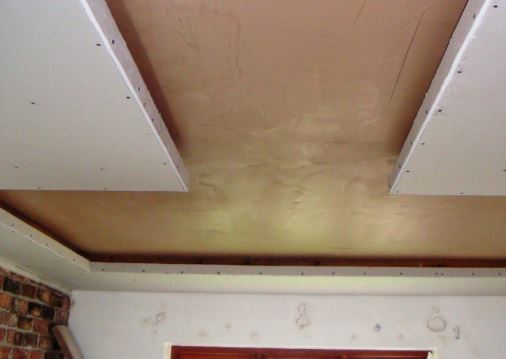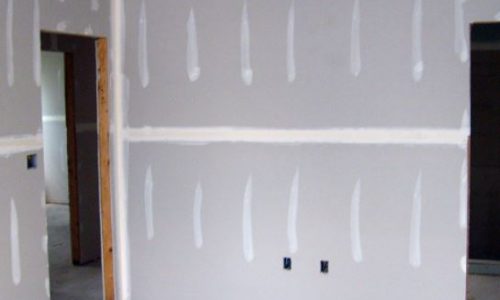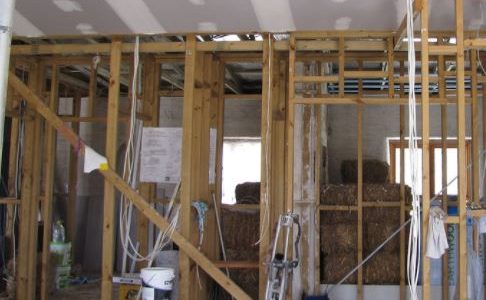
Chinese Sheet Rock | Chinese Drywall | Toxic Drywall
- chinese drywall
- chinese sheet rock
- December 19, 2019
Chinese Sheet Rock
Contents
Quick facts about Chinese sheet rock:
- Anecdotally linked to various health issues
- Confirmed to cause extensive corrosion and property damage
- Primarily used in construction between 2001 and 2008
- Majority of cases a centered in Florida, Virginia, Louisiana, and Mississippi
What is Chinese sheet rock?
Chinese sheet rock is a material defect that will have consequences that will far surpass anything that they construction industry has seen since asbestos. A relationship between Chinese sheet rock and significant corrosion within a home has been established and verified by the government. This problem sheet rock off gases sulfur compounds that combine with latent humidity to create an extremely corrosive indoor air environment. This corrosive sulfur compound attacks anything metal. Many owners report that the most prevalent Chinese drywall problem is the failure of sensitive and expensive electronics. TVs, DVD players, radios, and computers fail much more quickly than the average failure rate. One home owner reported that her TV failed after just nine months.
What does Chinese sheet rock do?
Appliances, including refrigerators, ovens, and air conditionings, have also been affected. As part of a visual inspection for toxic drywall, one of the areas that is typically inspected is the air conditioning. This is another huge problem of Chinese sheet rock. Air conditionings and appliances are very expensive and this corrosive gas is causing them to fail in a fraction of the expected life. Further, several areas in the country where these problems have been reported are known for hot summers. Air conditionings and refrigerators that are constantly failing in an area with a hot and humid climate does not make it very comfortable to live in the affected home.
This gas is affecting door hinges, door knobs, faucets, mirrors, and cabinet hardware. Each and every metal component in the home is being corroded, but these are relatively minor issues associated with Chinese sheetrock. Looking for a chinese drywall quick fix?
Does insurance pay to for damages caused by Chinese sheet rock?
The issues caused by Chinese sheet rock are not covered by the insurance typically carried by home owners. Insurance companies are relying on two specific clauses to deny coverage for Chinese sheet rock damages. First, slow decay and gradual corrosion in a home would not typically be covered as those situations are classified as normal wear and tear. In homes that are affected by defective sheet rock, the insurance companies also deny coverage based on a clause that excludes any issues resulting from material defects or pollution. In fact, some insurance companies are dropping or not renewing coverage if the insured files a claim for Chinese drywall.
This corrosive indoor air environment attacks the copper that is installed as wiring in a typical home. Before this problem sheet rock was installed, the electrician installed copper wire to each room in the home. The copper wiring links switches, outlets, and lights. The increased corrosion caused by the hydrogen sulfide gas increases the resistance to electrical current. The increased resistance to electrical current will cause higher levels of heat as electrical current passes through the corroded copper. One of the most significant issues with Chinese sheet rock is a result of this increased heat and the increased risk of electrical fire. It is reported that some insurance companies have begun to cancel insurance on homes suspected to have Chinese drywall due to this increased risk.
Electrical fires are a significant issue associated with toxic drywall for another reason. In general, house fires are a significantly dangerous situation. Each year, house fires result in many deaths nationwide.
What are the dangers of Chinese sheet rock?
Additionally, there are several other Chinese drywall problems. The gas that causes the corrosive environment also causes adverse health effects. When the sulfur gas emitted combines with latent humidity it creates hydrogen sulfide. Identified by the government as hazardous to human health, hydrogen sulfide exposure has been limited by several government groups. Although, the government has not established the results of extended exposure to this gas, it has established that the adult exposure limit is no more than 10 minutes at levels that do not exceed 10 parts per million (ppm).
Several owners report that the first signs of Chinese sheet rock is a “rotten egg” smell. The human nose can first detect this smell at a concentration of 40 parts per billion. Although this concentration is substantially less than the government set exposure level, the length of exposure is significantly longer. Occupants of homes affected by problem sheet rock could be expected to be exposed to this gas for 8-12 hours per day. That duration is 60 times the duration studied by the government. Additionally, there are no recommendations for a safe exposure limit for infants and children.
An issue related to toxic drywall is the production of carbon disulfide. This gas is known to affect central nervous health, cardiovascular health, and reproductive health. Government-set exposure limits for carbon disulfide is just 1 ppm, 10% of the safe short term exposure for hydrogen sulfide. Like hydrogen sulfide, the carbon disulfide long term issues are not known. The short term exposure limits for carbon disulfide are based on how the gas affects the central nervous, cardiovascular, and reproductive systems.
The problems caused by Chinese sheet rock are huge. Property damage is expensive and the potential for adverse health effects is significant. Before buying a home, be sure to have a Chinese drywall test.





